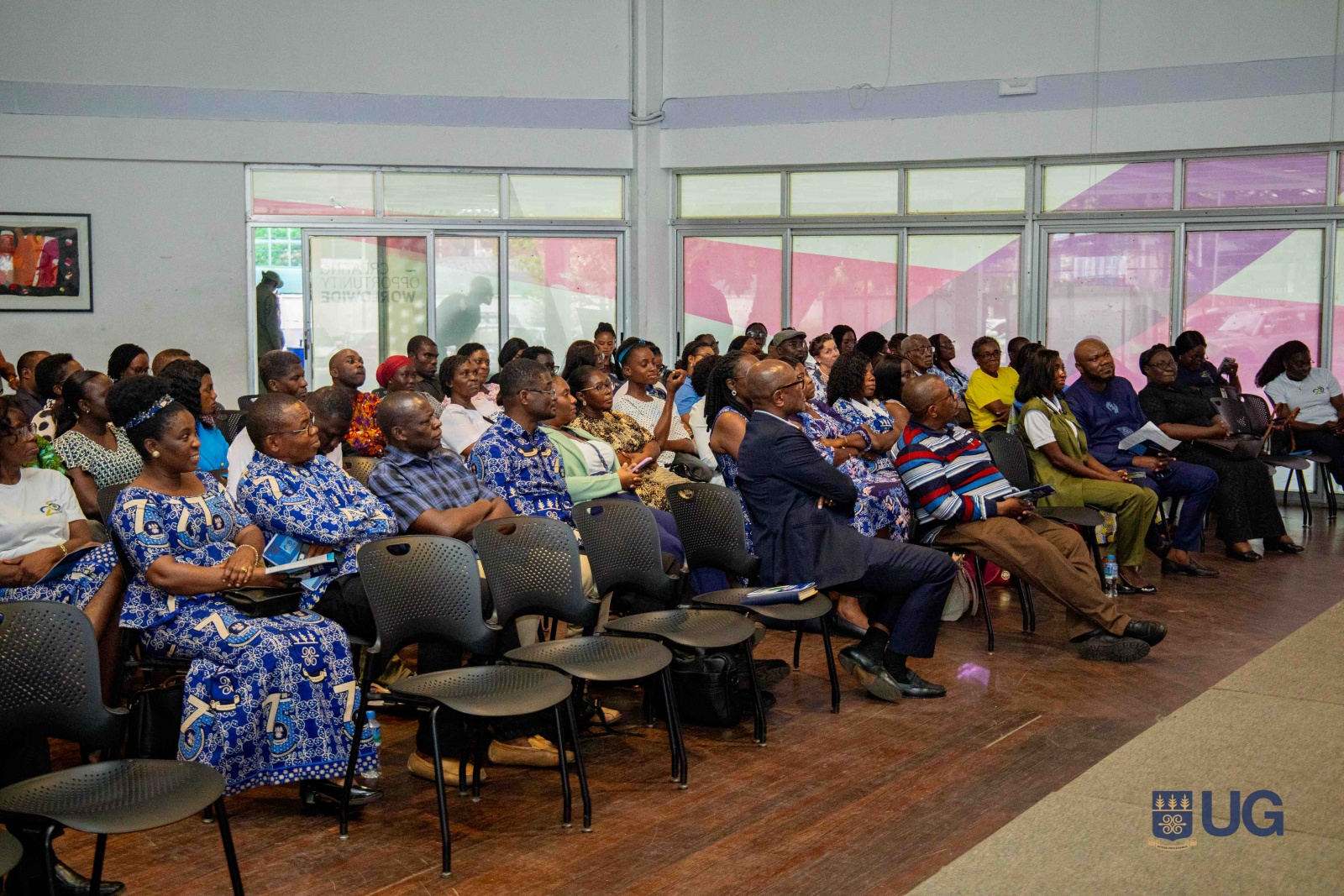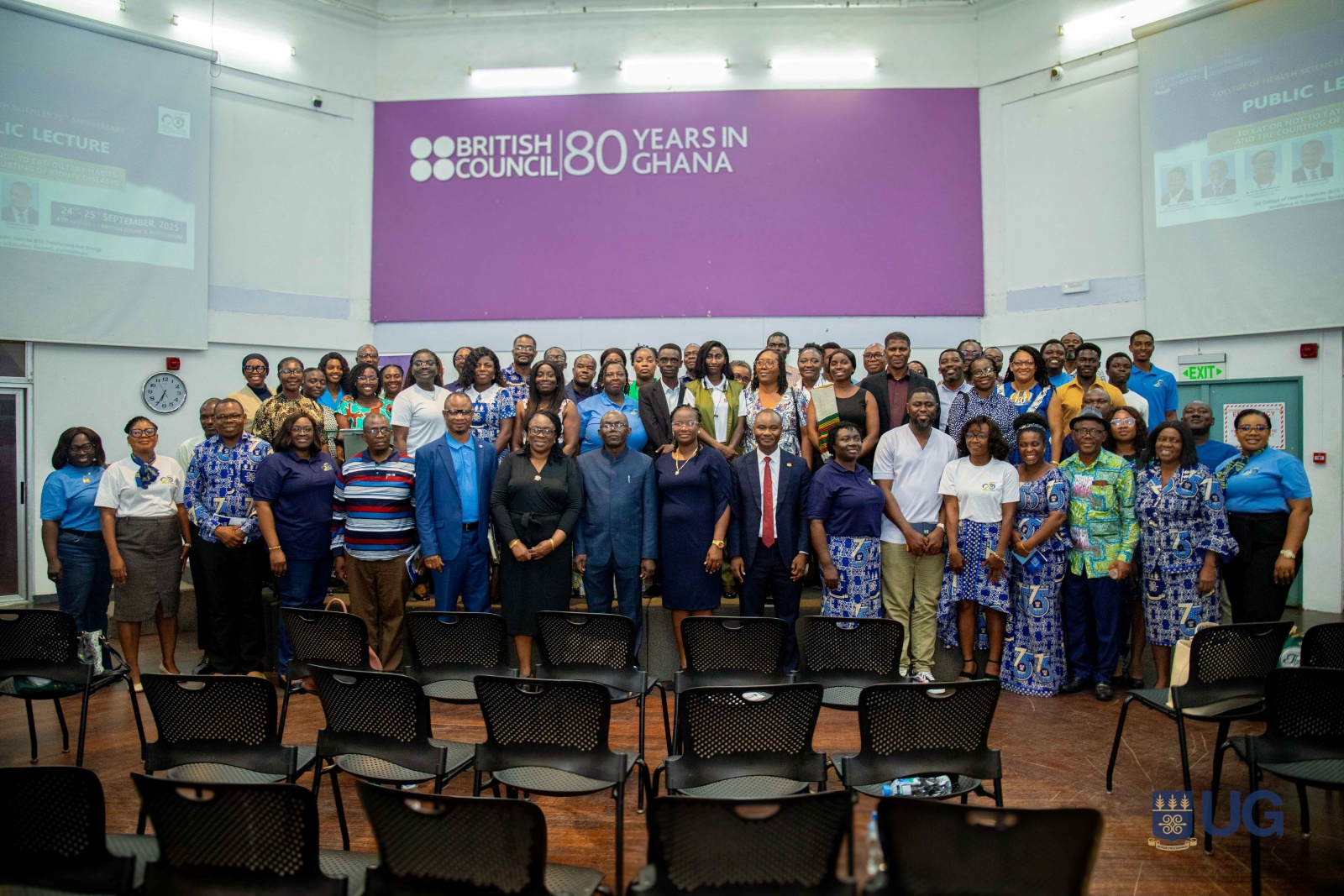Unhealthy Dietary Habits Driving Kidney Disease in Ghana – Experts Warn

As part of its 25th anniversary, the College of Health Sciences held a two-day public lecture under the theme: “To Eat or Not to Eat: Dietary Habits and the Courting of Kidney Diseases.”
Senior Lecturer at the Department of Dietetics, Dr. Rebecca K. Steele-Dadzie, cautioned that poor dietary habits are fast-tracking the rise of kidney diseases in Ghana, with many patients presenting late and at younger ages than global averages.

She explained that chronic kidney disease (CKD) has become the most common kidney condition in Ghana, affecting 13.3% of the population, with hypertension and diabetes as leading risk factors. She highlighted risky eating behaviours such as excessive salt consumption, frequent use of processed foods, low fruit and vegetable intake, reliance on artificial seasonings and high consumption of fried and fast foods.
On his part, Mr. Maxwell Bisala Konlan, Principal Dietitian at the UG Hospital, used real-life clinical case studies to highlight how poor eating habits are accelerating the onset of kidney disease among both adults and young people in Ghana.
He emphasised that early diet intervention can slow or even prevent the progression of CKD, recommending the DASH diet; a balanced approach that prioritises fruits, vegetables, whole grains, lean proteins and reduced sodium intake.

Mr. Konlan also called for urgent national interventions to improve hypertension screening and management, especially among adolescents, while underscoring the need for supportive home environments and university-based assistance for students at risk.
Tackling the soaring cost of Kidney Disease, Prof. Vincent Boima, Head of the Department of Medicine and Therapeutics at the University of Ghana Medical School, underscored the major economic burden on patients, families and the national health system.
Prof. Boima explained that the high costs of kidney care, especially dialysis and transplantation, remain prohibitive for many patients in Ghana. Hemodialysis (HD), the most common form of treatment, requires multiple sessions weekly, costing thousands of cedis per month, pushing many households into financial distress. He outlined a set of strategies designed to bend the cost curve and make kidney care more accessible and sustainable. They include prioritising community-level screening and management of risk factors, advocating for duty and VAT waivers on dialysis equipment and consumables to make treatment more affordable and supporting bulk procurement and local manufacture of dialysis consumables to reduce unit prices.
Sharing brief remarks as Chairperson for the event, Pro Vice-Chancellor in charge of Research, Innovation and Development, Prof. Felix Ankomah Asante noted that, "this discussion is not only medical but also social and economic. It challenges us as academics, policymakers, health professionals and citizens to rethink our food environments and dietary habits as a matter of public health and national development."

In his presentation, Dr. Dwomoa Adu of the University of Ghana Medical School (UGMS) also called for a comprehensive, prevention-focused national strategy to reduce the disease’s devastating toll on individuals, families and the health system.
Dr. Adu reiterated that prevention is the most cost-effective and sustainable way to address the kidney disease crisis. He noted that many people at risk, particularly those with hypertension and diabetes, often remain undiagnosed until kidney function is severely impaired.




